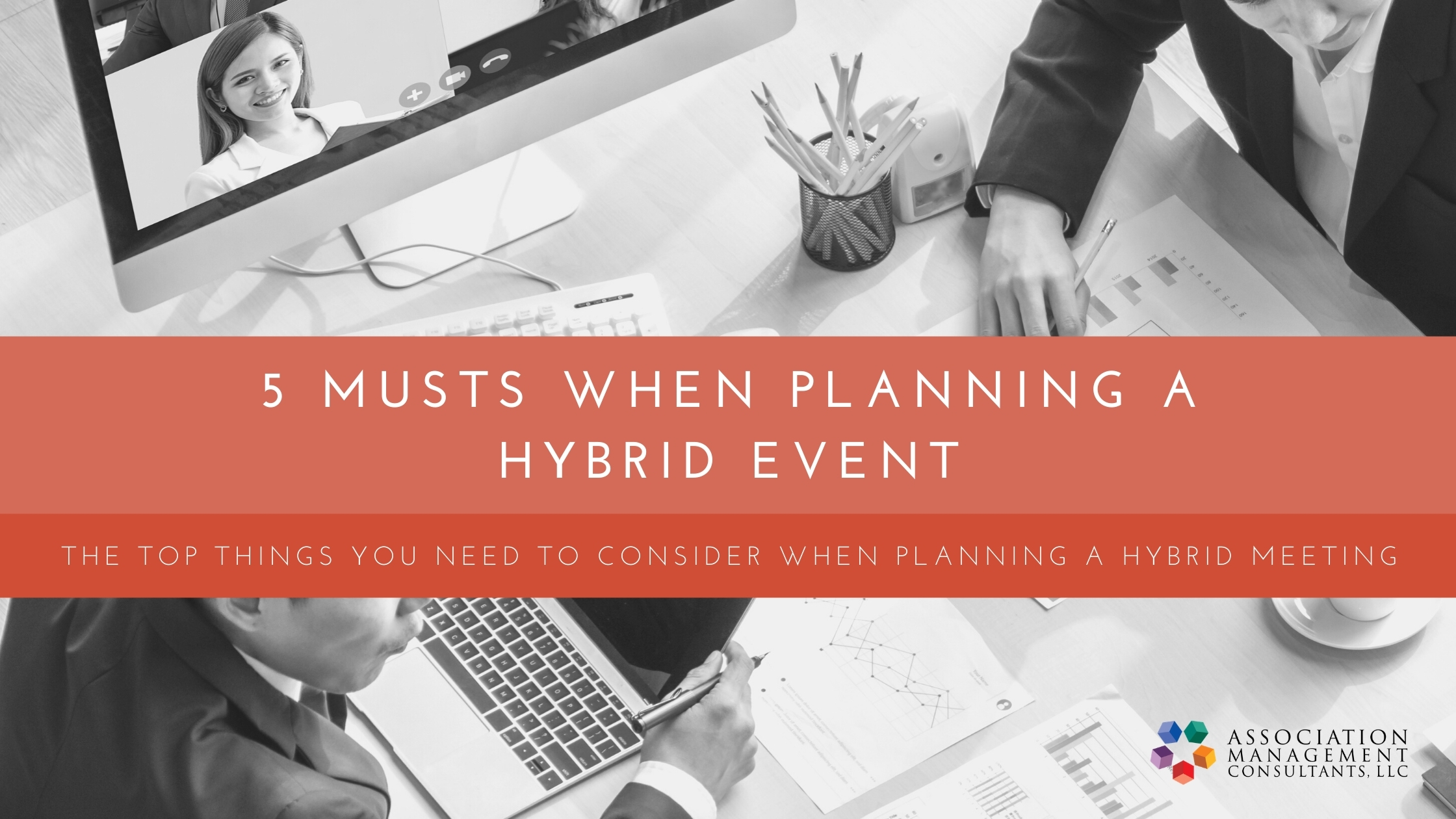The Houston Society of Association Executives took on the task of hosting a hybrid meeting in fall of 2020. This experience allowed me to have a front row seat to the planning and execution of a hybrid meeting. It was more than I expected. Here are the top things you need to consider when planning a hybrid meeting.
- Time
Seasoned meeting planners can put a meeting for 30 people at a hotel or country club together in about four weeks. Most of that time is for proper marketing of the event after a speaker has been selected and to allow for registration. Hybrid events should start planning at least three months in advance for a simple meeting like above and longer if more complicated conference or large meeting. We typically reserve venues for regular meetings or conferences about six months to a year in advance. If you are planning a hybrid meeting you should book your audio visual company at the same time as your venue to lock-in the production manager you want and to make sure their schedule can accommodate your meeting.
- Attendee Experience
You will be running two concurrent events with different experiences for each attendee. What is each attendee hoping to gain from the experience? Map out what will be happening virtually when people are checking in or eating a meal. How would the noise from a restaurant or venue translate to the virtual audience? Look to not have your in person meeting eating during your speaker. The noise from bussing plates comes through to a virtual audience. Ambient noise or people talking can also get picked up. Be mindful where your microphones are placed throughout the room and take note of what the online user is experiencing in real time. Make sure your virtual meeting planner knows how to troubleshoot issues and has messages to engage virtual attendees in the chat or Q&A area.
- Need for Meeting Professionals
A regular meeting for 30 - 100 people can typically have one to two meeting planners running the event. Once you add the virtual component, you need to add one to two virtual meeting professionals as well. They can troubleshoot with virtual attendees, monitor the waiting room, engage with questions during the presentation and ensure the attendees are hearing and viewing the meeting without any issues. It is nice to have an onsite liaison for the virtual meeting managers so they can work with AV or the venue on noise and audio or video quality.
- Testing
Allow for extra time to test before the event goes live. Every meeting planner knows AV testing is a must. This is the thing that can really hurt your virtual experience. If a microphone goes down or doesn't work in person there is a backup or worst case scenario speak loudly! If your audio doesn't feed into your virtual space, you will probably receive a few emails from attendees asking for refunds. Give yourself at least two hours pre event check in time to test and make sure all works smoothly.
- Audio Visual Team
You can DIY your event using an iPad with a stand and Facebook Live or YouTube streaming, but if you want to have your virtual audience feel like they are experiencing a high quality professional event, you will want to include an audio visual vendor. This pricing can be anywhere from $2000 - $15,000+ based on the length and complexity of your event. Ask them for example event recordings so you can see what it looks like and if they can give you the experience you are hoping to achieve. This can't be run by one person on Zoom with multiple computers. You need an audio tech, video tech, production manager and possibly an extra person or two for set up and breakdown or on site needs. Talk to your provider on what are your needs vs. nice to have so you can stay on budget, but have the most professional event possible.
If you are still wanting to go forward hosting a hybrid meeting after reading this post. Great! If not, I understand. I'm weary to recommend hybrid events to clients. Before COVID, we were well versed in in-person meetings and during COVID we have become well versed in virtual meetings. Putting the two together is not as simple as you think they should be. There is a lot of extra planning involved and extra people to manage which in turn comes down to budget. If your budget can't handle the extra costs, don't do it. In the end, you want to give your attendees the best experience possible.

